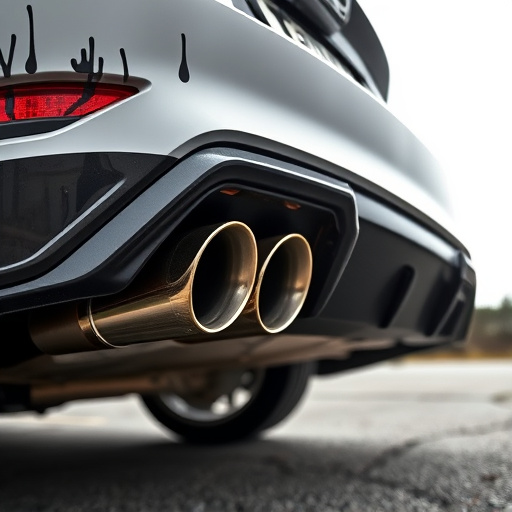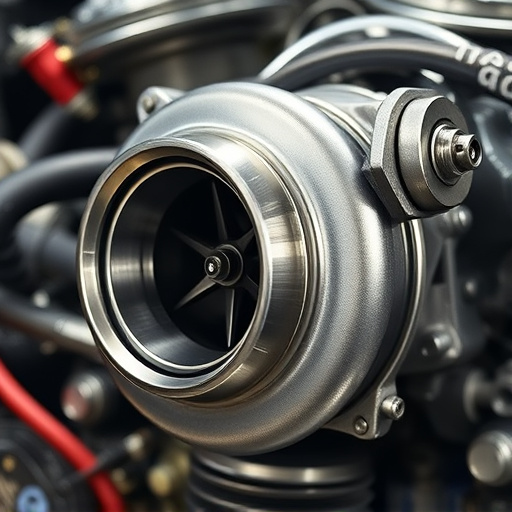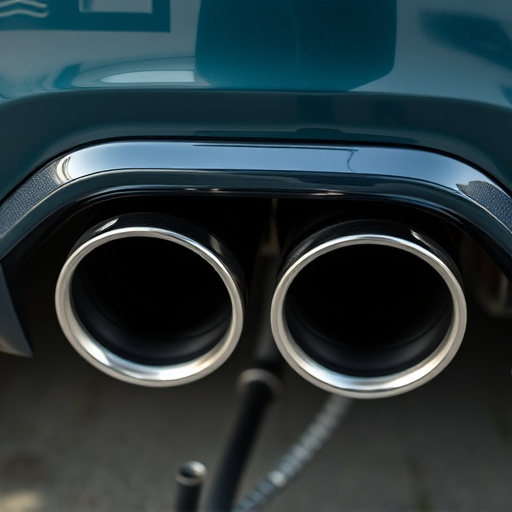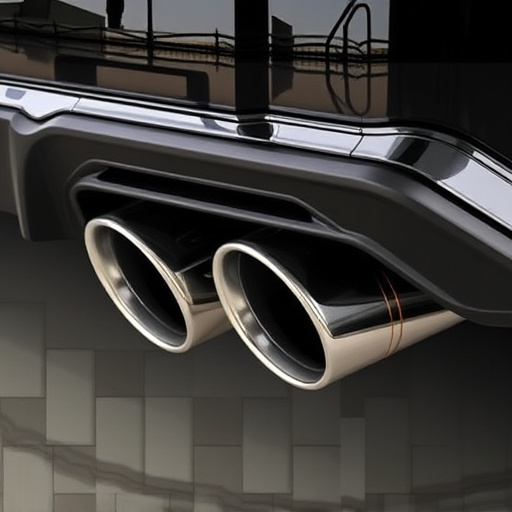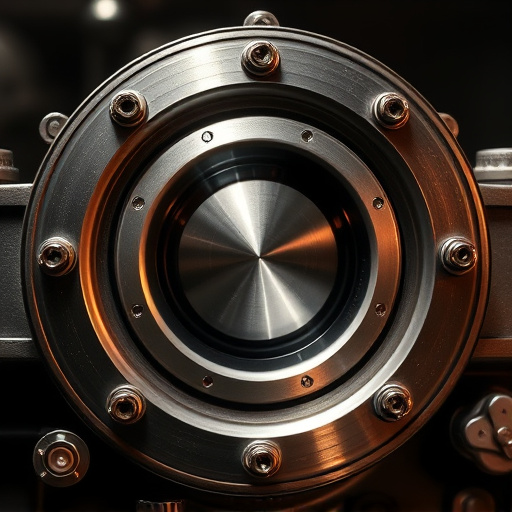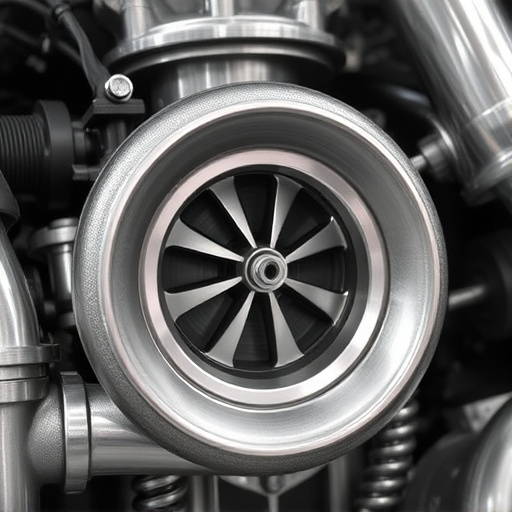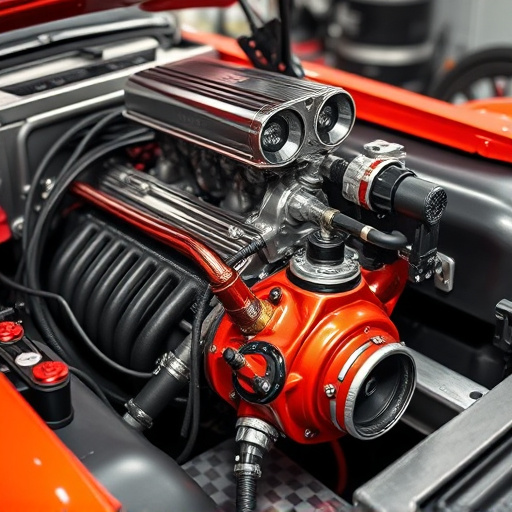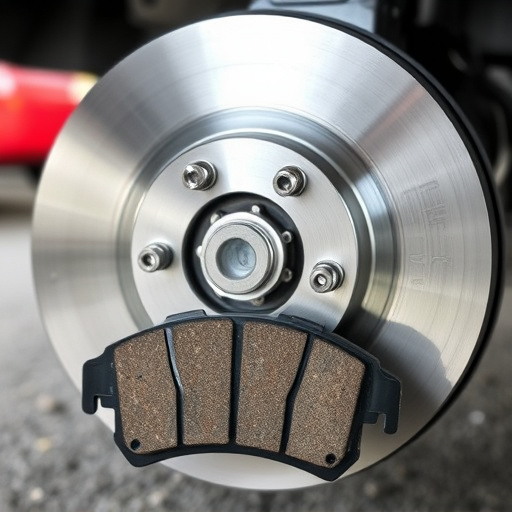Exhaust systems for cars are often overlooked but crucial components that significantly impact vehicle performance and efficiency. They not only produce the characteristic sound but also serve as a critical cooling mechanism for high-performance engines by facilitating the escape of hot exhaust gases, preventing overheating, and ensuring optimal engine efficiency. Advanced exhaust systems can enhance power output and torque delivery through optimized flow paths and engineered materials. Furthermore, modern designs adhere to environmental regulations by employing catalysts that break down harmful emissions, contributing to cleaner air. Well-designed exhaust systems also optimize combustion, reduce backpressure, and enhance fuel economy, resulting in increased power output and improved driving experience, while prolonging engine longevity by keeping components clean.
Exhaust systems are often dismissed as mere noise makers, but these components play a pivotal role in enhancing vehicle performance, safety, and aesthetics. Beyond emitting sounds, exhaust systems serve critical functions such as improving engine efficiency, controlling emissions, and mitigating harmful noise pollution. Customizable and aesthetically appealing, modern exhaust systems offer personalized experiences that cater to drivers’ style and performance preferences, transforming cars into unique expressions on wheels. Understanding these multifaceted aspects of exhaust systems for cars is essential for every automotive enthusiast.
- The Essential Role of Exhaust Systems in Vehicle Performance
- – Understanding the primary functions of exhaust systems
- – How they contribute to engine efficiency and emissions control
The Essential Role of Exhaust Systems in Vehicle Performance
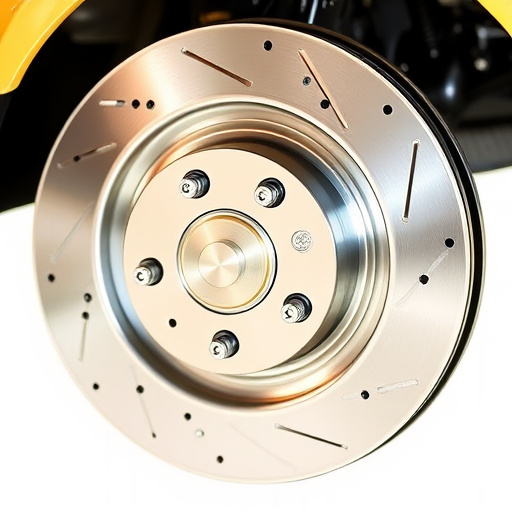
Exhaust systems for cars play a pivotal role in vehicle performance, often overlooked but indispensable. Beyond producing the characteristic rumble that echoes through city streets, these systems serve as a crucial cooling mechanism for high-performance engines. As engine components like pistons and cylinders work tirelessly to propel the vehicle forward, they generate immense heat—a by-product that must be efficiently dissipated. Exhaust pipes, along with other vital components such as muffler tips, facilitate this process by acting as a conduit for hot exhaust gases to escape, preventing overheating and ensuring optimal engine efficiency.
Moreover, advanced exhaust systems can incorporate high performance parts designed to enhance power output and torque delivery. Optimized flow paths and carefully engineered materials enable more efficient combustion, leading to improved vehicle responsiveness and overall driving pleasure. Just as crucial is the role of exhaust systems in adhering to stringent environmental regulations. Modern designs employ specialized catalysts that break down harmful emissions into less toxic compounds, ensuring cleaner air for all.
– Understanding the primary functions of exhaust systems
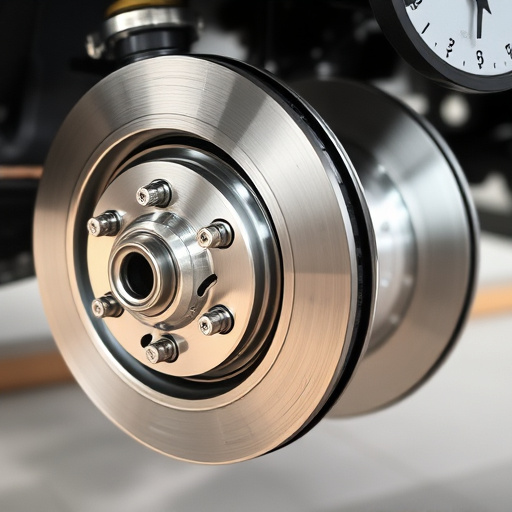
Exhaust systems for cars serve multiple critical functions that extend far beyond merely emitting a loud noise to indicate an engine’s presence. At their core, they facilitate the removal of harmful gases and waste products from the combustion chamber, playing a vital role in maintaining vehicle performance and ensuring the safety of drivers and passengers. These systems act as a conduit for exhaust gases to escape, preventing them from entering the passenger compartment and causing potential health issues.
Moreover, well-designed exhaust systems contribute to improved vehicle performance by optimizing engine efficiency. They manage the flow of exhaust gases, reducing backpressure in the cylinder, which can lead to better fuel combustion and increased power output. This not only enhances driving experience but also contributes to overall vehicle longevity by keeping essential components like brake rotors clean and free from debris caused by incomplete combustion.
– How they contribute to engine efficiency and emissions control
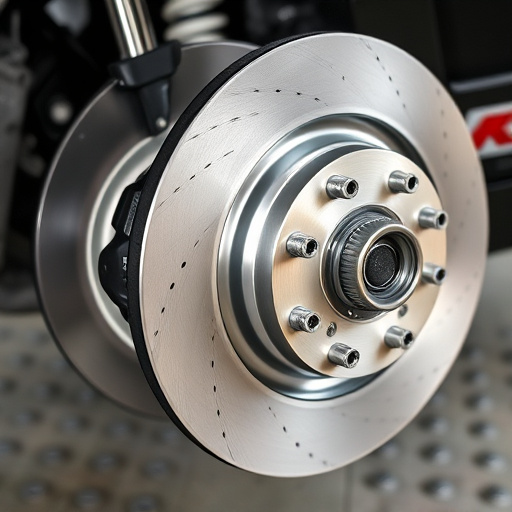
Exhaust systems play a vital role in enhancing engine performance and efficiency. Beyond their primary function of reducing noise, these systems are designed to control and manage gases expelled from the engine. By facilitating the flow of exhaust gases, they optimize combustion, leading to improved fuel efficiency. The strategic design includes components like headers, exhaust pipes, and catalytic converters that work together to reduce harmful emissions, ensuring compliance with environmental standards.
Moreover, advanced exhaust systems incorporate muffler tips designed for minimal backpressure, allowing for better engine breathing and increased power output. Integrating these systems with other performance upgrades, such as coilover kits, can significantly enhance the overall driving experience. The synergy between the exhaust system and intake components contributes to a more responsive and efficient motor, ultimately making exhaust systems indispensable for car enthusiasts seeking both performance and emissions control.
Exhaust systems are not just about producing a loud rumble; they play a vital role in enhancing vehicle performance and environmental sustainability. By efficiently routing and reducing engine gases, these systems contribute to better fuel combustion and lower emissions. Understanding the essential functions of exhaust systems highlights their importance in modern cars, making them an integral component for both performance and ecological considerations.



